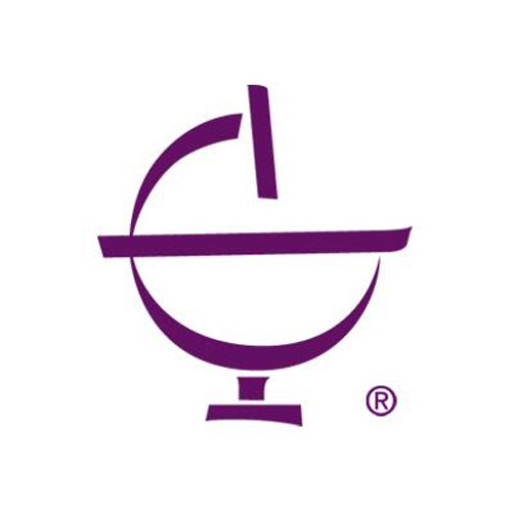Photos of university / #charlessturtuni
The Graduate Diploma of Pastoral Counselling at Charles Sturt University offers a comprehensive foundation in counselling principles, pastoral care, and mental health support tailored for individuals seeking to enhance their capacity to provide compassionate assistance within community, religious, or professional settings. Designed for those who aim to develop practical counselling skills alongside a solid understanding of ethical considerations and diverse client needs, this program equips graduates with the tools necessary to support individuals experiencing personal, emotional, or spiritual difficulties. The curriculum integrates theoretical frameworks from psychology and counselling with real-world applications, emphasizing culturally sensitive and ethically responsible practice. Students will engage in supervised practical placements that foster experiential learning and skill development, preparing them for roles in churches, community organizations, educational institutions, or mental health services. The program is suitable for professionals in related fields looking to expand their expertise, religious leaders seeking to deepen their pastoral care skills, or individuals pursuing a career shift into mental health support. Throughout the program, students will explore topics such as counselling techniques, human development, crisis intervention, ethical and legal issues, and religion and spirituality's role in mental health. The Graduate Diploma of Pastoral Counselling provides a pathway for further postgraduate study, including pathways to Master's qualifications in counselling or related disciplines. Upon completion, graduates will be equipped to provide empathetic, ethical, and effective support, contributing positively to individual wellbeing and community resilience.
The Master of Pastoral Counselling at Charles Sturt University is a comprehensive program designed to equip students with the essential knowledge, skills, and ethical foundation necessary for effective pastoral counselling practice. The curriculum combines theoretical frameworks with practical applications, focusing on providing emotional support, guidance, and intervention strategies to individuals and communities facing various life challenges. Throughout the course, students will explore core areas such as counselling techniques, pastoral care principles, mental health awareness, and ethical considerations in counselling practices. The program emphasizes the development of active listening, empathy, and communication skills to foster strong counselor-client relationships. Additionally, students will engage in supervised placement components that enable them to apply their learning in real-world settings under professional guidance. The curriculum also addresses contemporary issues such as trauma counselling, crisis intervention, grief and loss support, and working with diverse populations. Faculty members are experienced professionals dedicated to supporting students’ academic and personal growth. Upon completion of the program, graduates will be well-prepared to serve in a variety of pastoral and helping professions, including chaplaincy, community outreach, mental health services, and religious organizations. The Master of Pastoral Counselling at Charles Sturt University aims to nurture compassionate, ethical, and competent practitioners who can make a meaningful difference in the lives of individuals and communities.
The Master of Pastoral Counselling program at Charles Sturt University requires applicants to have completed a relevant undergraduate degree or possess equivalent prior learning and professional experience. Prospective students should demonstrate a foundational understanding of counselling principles, pastoral care, and ethics. The program is designed to develop advanced skills in pastoral counseling, including the ability to provide psychological and spiritual support to diverse populations. The curriculum covers core topics such as counselling theories, pastoral theology, mental health, crisis intervention, ethical practice, and supervised practical placements. Students are expected to engage in both theoretical coursework and experiential learning that emphasizes cultural competence, ethical decision-making, and evidence-based practices. To graduate, students must successfully complete 240 credit points, which typically encompass coursework units, a research component, and professional placement placements. Admission may also require submission of a personal statement outlining motivation for studying pastoral counselling and evidence of relevant pastoral or community work. The program encourages ongoing professional development and often involves interdisciplinary collaboration with other health and community services. Students are advised to meet any specific language proficiency requirements if applicable. The program prepares graduates for careers in spiritual care, community service organizations, mental health agencies, and as pastoral counsellors within various faith communities. Completion of the program equips students with both practical counselling skills and a deep understanding of pastoral care ethics, enabling them to support individuals through various life challenges, facilitate emotional and spiritual well-being, and contribute meaningfully to the wellbeing of their communities.
The Charles Sturt University offers various financial options for students enrolled in their Pastoral Counselling programs. prospective students can explore a range of scholarships, grants, and financial aid opportunities designed to support their educational journey. The university provides detailed information on tuition fees, payment plans, and external funding sources, allowing students to plan their finances effectively. Domestic students typically have access to government loan schemes such as FEE-HELP, which subsidizes tuition fees and offers flexible repayment options based on income levels. International students are expected to pay upfront or establish payment arrangements that suit their circumstances, with costs varying depending on the specific undergraduate or postgraduate program chosen.
Charles Sturt University also promotes scholarships targeted at students pursuing pastoral or related counselling fields. These scholarships may be based on academic merit, financial need, or community service contribution. Additionally, students can seek external sponsorship or grants from charitable organizations, religious institutions, or professional counselling associations. The university encourages applicants to consult the financial aid office early in their application process to understand eligibility criteria and application procedures.
Students are advised that tuition fees for postgraduate courses, including those in Pastoral Counselling, are subject to annual reviews and may increase slightly each year. The university ensures transparency by providing a comprehensive fee schedule accessible via its official website. Flexible payment options are available, including paying per subject, semester-based tuition payments, or full upfront payment, depending on the student's preference.
Furthermore, Charles Sturt University occasionally offers bursaries and emergency assistance programs to support students facing unforeseen financial hardships. It is recommended that students explore external funding sources such as government grants, community funds, and professional development loans that may be applicable to their circumstances.
In summary, the university provides extensive financial resources designed to assist students in funding their Pastoral Counselling studies. The combination of government schemes, scholarships, payment flexibility, and external funding opportunities allows students to manage the costs associated with their education effectively and focus on their academic and professional development in the field of pastoral care and counselling.
The Master of Pastoral Counselling at Charles Sturt University is a comprehensive program designed to prepare students for professional practice in providing pastoral, spiritual, and psychological support within various community settings. This qualification is aimed at individuals who are interested in developing advanced skills and knowledge necessary to address complex mental health issues, grief, trauma, and personal development through a faith-based and ethically grounded framework. The curriculum integrates theoretical foundations with practical application, ensuring graduates are well-equipped to assist individuals and groups effectively.
Throughout the course, students explore a range of topics including counselling theories, pastoral care ethics, mental health strategies, human development, and spiritual care. Emphasis is placed on developing strong interpersonal skills, cultural competency, and ethical decision-making, which are crucial for effective counselling practice in diverse environments such as healthcare, community services, churches, or other pastoral settings. The program often incorporates work-integrated learning components, allowing students to gain real-world experience under supervision, thereby enhancing their confidence and competencies before entering the workforce.
The degree is suitable for those who already possess some background in theology, ministry, or health-related fields and are seeking to extend their qualifications into pastoral counselling. It is also designed to be flexible, with part-time study options available to accommodate working professionals. Graduates of the program are prepared to work in roles that require sensitive, ethical, and evidence-based counselling, with the ability to support individuals dealing with life crises, mental health challenges, or spiritual distress.
Charles Sturt University’s approach to pastoral counselling education emphasizes a holistic view of wellbeing, combining psychological principles with spiritual care practices. The program encourages critical reflection, lifelong learning, and professional development to promote best practices. As a leading provider of online and on-campus education, CSU offers accessible learning environments for students nationwide and internationally. Overall, the Master of Pastoral Counselling prepares graduates to serve as compassionate, competent, and ethical practitioners in a variety of pastoral and community-based roles.







